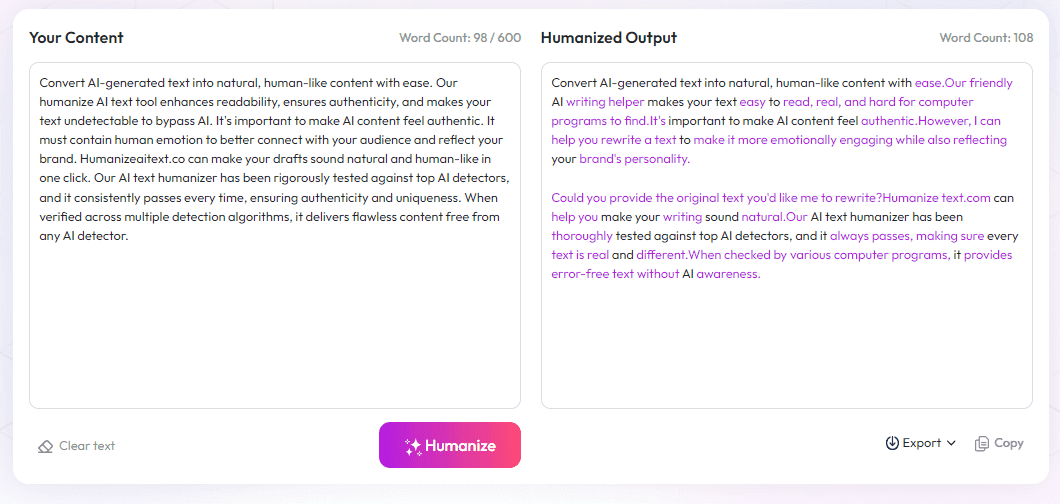Table of Contents
Looking for the best universities to study publishing? It can be a bit overwhelming figuring out where to go, especially with so many options out there. But don’t worry—you’re not alone in feeling a little lost on this journey.
If you keep reading, I’ll share some top choices for publishing studies in 2025, so you can make a smarter decision and find a school that fits you perfectly. Trust me, knowing the right place to study can make your dreams of becoming a publishing pro much easier to chase.
In a quick peek, I’ll introduce the leading universities that stand out for their publishing programs next year—so stay tuned!
Key Takeaways
Key Takeaways
- Top publishing study options for 2025 include the University of Sydney, University of Melbourne, Cornell, NYU, and University of Michigan, known for strong programs and industry ties.
- Admissions often require high test scores and selective acceptance rates, with Cornell and NYU being highly competitive.
- Choosing the right school depends on your goals, budget, and credentials; affordability and financial aid options play a big role too.
- Gaining internships and hands-on experience in publishing boosts your chances and helps you build industry contacts.
- Scholarships, fellowships, and assistantships are available—apply early and explore external funding sources.
- Career options after graduation include editing, literary agencies, content creation, and freelancing; internships can open these doors.
- Staying current matters—learning about digital storytelling, social media, and data skills will help you succeed in the changing publishing world.

Top Universities for Publishing Studies in 2025
If you're aiming to dive into publishing studies, knowing which universities top the list can give you a huge advantage. The University of Sydney, University of Melbourne, and Cornell University are leading the way in global rankings based on research performance, with Sydney taking the top spot in 2025 (EduRank). These schools aren’t just famous; they’ve built reputations on cutting-edge programs that prepare students for real-world publishing careers.
In the United States, some schools stand out for their strong publishing and media programs. New York University (NYU) and the University of Michigan are widely recognized for their specialized curricula and industry connections. NYU’s acceptance rate is just about 9%, with an average SAT score of 1525, making it a highly competitive choice for aspiring publishers (EduRank, 2025).
Another key player is Cornell University, known for its selective publishing program. The acceptance rate sits at a tight 8%, and students typically have an SAT score of around 1520. This makes Cornell one of the top options if you’re aiming for the crème de la crème, especially considering its focus on research and industry ties (EduRank, 2025).
It’s not just about reputation; affordability and financial aid matter too. For example, the University of California, Berkeley has an acceptance rate of 12% for publishing programs, with about 61% of students receiving financial aid averaging roughly $25,951 annually. That’s an important factor to consider for many students looking to balance quality and affordability.
For students considering a broader spectrum of options, Rutgers University has a more accessible acceptance rate of 65%, with an average SAT score of 1375. While it may not be as selective, Rutgers still offers solid programs suitable for those beginning their publishing journey (EduRank, 2025).
Reviewing the latest data, it’s clear that top schools like NYU, University of Michigan, Cornell, and Berkeley aren’t just about prestige—they’re equipped with the resources and connections that can open doors in the world of publishing. If you want to explore even more options, check out the full list of ranked programs in the (https://www.qs.com/). Those rankings include more than 250 institutions, with the University of Amsterdam topping the list in communication and media studies.
Choosing the best university depends on your goals, budget, and academic credentials. Whether aiming for a highly selective institution or a strong regional school, understanding each program’s strengths will help guide your decision. Now, let’s look at what makes these universities stand out and how you can position yourself to get in.

How to Build a Strong Application for Publishing Programs
Securing a spot in top publishing programs isn’t just about grades—it’s also about presenting a compelling application.
Start by highlighting relevant experience, whether through internships, writing projects, or industry connections.
Get a head start on crafting a standout personal statement that reflects your passion for publishing and your career goals.
Letters of recommendation matter, so choose mentors or colleagues who can speak to your skills and dedication.
Make sure your portfolio showcases your best work—consider including published articles, creative pieces, or research projects.
Familiarize yourself with each program’s specific requirements to tailor your application accordingly.
Tip: Review successful applicants' stories online to understand what admissions committees value most.
Finally, don’t forget to proofread every element—poorly edited apps can be a big turn-off.
Internships and Experience in Publishing: Tips to Get Started
Gaining real-world experience can boost your chances of landing a coveted spot in a top program.
Look for internships at publishing houses, media companies, or literary agencies—that's where the magic happens.
Even volunteer work or freelance projects count; any hands-on experience helps build your skill set.
Networking matters—attend industry events, workshops, or webinars to meet professionals and learn about opportunities.
Use platforms like LinkedIn to connect with editors, agents, and fellow aspiring writers.
Don't shy away from applying for smaller roles; they often lead to more significant opportunities down the line.
Keep a journal of your experiences to reflect on what you've learned and to document your growth.
Scholarships and Financial Aid Options for Publishing Students
Studying publishing at a top school can be costly, but numerous scholarships and aid programs are out there.
Start by checking with each university’s financial aid office for available scholarships specific to publishing or communications.
External scholarships from literary foundations or industry groups can also help reduce costs.
Look into fellowships or assistantships; many programs offer teaching or research roles in exchange for tuition waivers.
Some universities, like UC Berkeley, have substantial aid packages—over 60% of students receive some form of aid, averaging around $25,951 annually.
Be proactive—apply early and prepare strong supporting documents to maximize your chances.
Additionally, consider online resources like (https://www.fastweb.com/) for scholarship opportunities tailored to media and publishing students.
What Are Career Paths After Completing Publishing Studies?
After graduation, you can explore various paths, from editorial roles to media management.
Many graduates find work as editors, literary agents, or content strategists.
Publishing houses often seek project managers and marketing specialists—knowledge gained in your studies can be a big plus.
Digital media and online platforms are also hiring for content creators, social media managers, and e-book publishers.
Some alumni choose to become freelance writers, consultants, or start their own publishing ventures.
Pro tip: Use your thesis project or internships as a springboard—networking through these experiences can open job doors.
Visit industry events, join professional associations like the (https://publishers.org/) to stay connected.
Emerging Trends in Publishing Education and Industry in 2025
Publishing is changing fast, and so are the skills required to succeed.
Digital storytelling, multimedia content, and data-driven publishing are becoming more prominent.
Universities are adding courses on podcasting, social media marketing, and digital rights management.
Industry shifts towards self-publishing, audiobooks, and e-books mean students should learn about independent publishing platforms.
Skills in SEO, analytics, and content marketing are highly sought after—consider taking extra courses or certifications.
Stay ahead by following industry blogs, attending webinars, and participating in online publishing communities.
Ready to get started? Check out (https://automateed.com/how-to-write-a-foreword/) to keep your knowledge fresh.
FAQs
Leading universities for publishing studies in 2025 include those with strong journalism, communication, and media programs. They are recognized for their research output, industry connections, and support for students interested in careers related to publishing and media.
Consider program curriculum, faculty expertise, industry connections, internship opportunities, and alumni success. Also, evaluate the university's reputation within publishing and media fields for making an informed choice.
Graduates can pursue careers in editing, literary agencies, publishing houses, media companies, and digital content creation. The degree provides skills relevant for roles in content management, marketing, and production within various media industries.
Research university rankings, program offerings, faculty credentials, and alumni success stories. Visiting campuses and speaking with current students can also help identify the best fit for your interests and goals in publishing studies.



